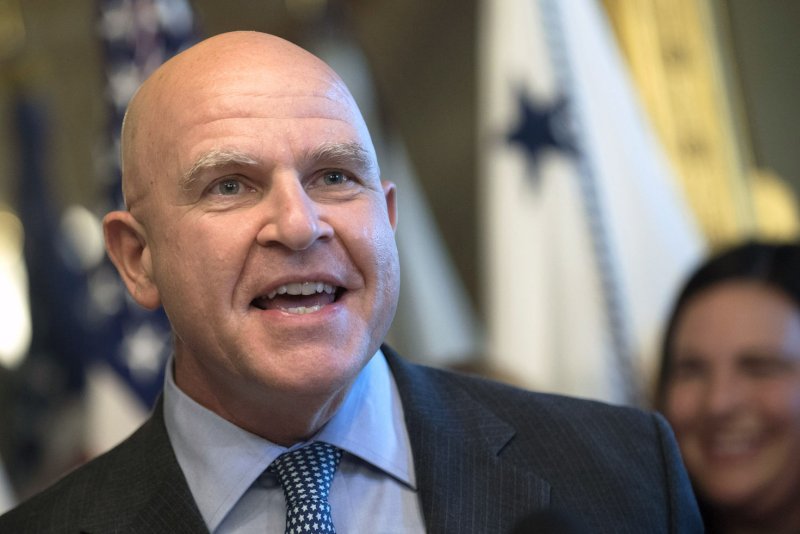National Security Advisor H.R. McMaster described North Korea's missiles as a "grave threat" to the United States on Wednesday. Photo by Kevin Dietsch/UPI |
License Photo
Aug. 2 (UPI) -- U.S. President Donald Trump's national security advisor said North Korean leader Kim Jong Un should not rest easy following Pyongyang's latest provocation.
North Korea's flagrant disregard for international warnings against missile development should be weighing on Kim's conscience and keeping the North Korean leader up at night, H.R. McMaster said.
"No, I think he should not be [sleeping well] because he has the whole world against him, right?" McMaster said. "He's isolated on this."
The White House national security advisor made the remarks during an interview on MSNBC's Hugh Hewitt, when he was being asked about North Korean advancements in ballistic missile technology.
Pyongyang's latest test of the Hwasong-14, which analysts have said is North Korea's first intercontinental ballistic missile, has culminated in a fresh round of condemnations and resulted in a deepening rift between the United States and China.
Trump has said on Twitter China has done "nothing" for the United States on North Korea, and U.S. Ambassador to the U.N. Nikki Haley said the "time for talk is over" and "China must decide whether it is finally willing to take this vital step" to impose the strongest sanctions that would stop North Korea.
In his interview on MSNBC on Wednesday, McMaster described North Korea's missiles as a "grave threat."
"I'm not going to confirm it," McMaster said. "But as I mentioned, really, whether it could reach San Francisco or Pittsburgh or Washington. How much does that matter, right? It's a grave threat."
McMaster also said there has been "no aggression" from the United States or its allies in the region and expressed ambivalence regarding regime change.
"I'm not sure about that. I don't think anybody has a very clear picture of the inner workings of that regime," he said.















